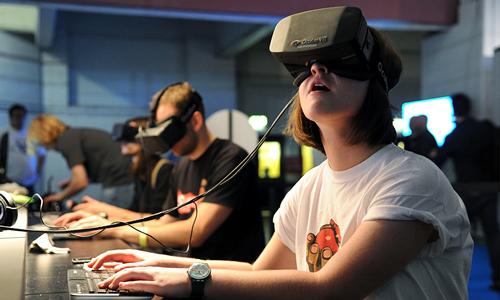26 Nov 2014
Study shows virtual reality has significant effect on brain function
BY Tom Anstey

Neurophysicists have discovered that the space-mapping neurons in the brain react differently when exposed to virtual reality (VR), with a study on rats showing VR makes a significant impact on the brain, though it is not yet known what effects this will have in future.
Published in the journal Nature Neuroscience, scientists studied the hippocampus – a region of the brain linked with diseases such as Alzheimer’s, stroke, depression, schizophrenia, epilepsy and post-traumatic stress disorder – and discovered that the same scene presented in both virtual reality and real life, presented completely different sets of neurological data.
For the study, researchers placed a small harness around rats and put them on a treadmill surrounded by a “virtual world” on large video screens — a virtual environment they described as “even more immersive than IMAX”. The rats were then introduced to a real room designed to look exactly like the virtual reality room with data for both circumstances measured.
In the virtual world, the rats’ hippocampal neurons appeared to be firing completely randomly, as if the neurons had no idea where the rat was — even though the rats seemed to behave perfectly normally in both the real and virtual worlds.
The study also showed that although the rats’ hippocampal neurons were highly active in the real-world environment, more than half of those neurons shut down in the virtual space. The difference separating the virtual world and the real space was that in VR, there was a lack of sounds and smells used by the brain to create a spatial map, using instead only visual landmarks to create that map.
“The pattern of activity in a brain region involved in spatial learning in the virtual world is completely different than when it processes activity in the real world,” said Mayank Mehta, professor of physics, neurology and neurobiology at the UCLA College and the study’s senior author. “Since so many people are using virtual reality, it is important to understand why there are such big differences.”
Close Window